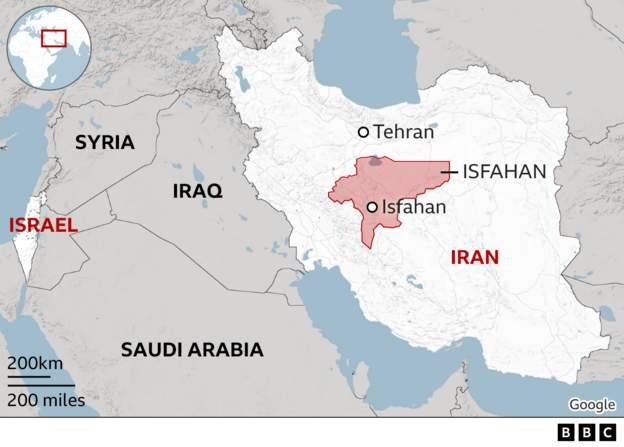
Is Israel’s Strike On Iran The End Or The Beginning?

Early reports, however, hint at the possibility that Israel’s attack is limited in an effort to avoid a wider war with Iran…There are also reports that indicate that Iran is minimizing the attack in official responses so far, which raise the possibility that an escalatory cycle of military st…
Israel’s widely anticipated retaliatory military strike on Iran arrived earlier today, putting markets on edge as investors weigh the implications. The potential for wider conflict hangs in the balance. Early reports, however, hint at the possibility that Israel’s attack is limited in an effort to avoid a wider war with Iran.
There are also reports that indicate that Iran is minimizing the attack in official responses so far, which raise the possibility that an escalatory cycle of military strikes can be avoided. Nonetheless, these are early days and the situation remains precarious.
For some context, here are excerpts from various experts and strategists:
“Israel’s strike appears to signal a willingness to deescalate from this dangerous round,” advises Sanam Vikil, director of the Middle East and North Africa program at Chatham House, a research house. “The strike on a military facility appears to have matched Iran’s in terms of target. scope and damage.”
“It is quite clear that this was not something that was meant to bring about further escalation,” says Raz Zimmt, a senior researcher at Israel’s Institute for National Security Studies. “There is no widespread attack. This is very pinpointed.”
CNN reports: “Iranian media appeared to further minimize the scale of the attack on Friday, broadcasting calm scenes from Isfahan showing residents walking through parks and visiting landmarks. Traffic was reported as normal and the airport was also reported to have reopened after flights were briefly canceled or suspended early Friday.”
Israel’s attack near the Iranian city of Isfahan is “very significant,” a nuclear and chemical weapons expert tells BBC. “[The reported attack] was fairly near to where we believe Iran is building nuclear weapons, so I expect it was a nod to them,” explains Hamish De Bretton Gordon, a former commander of UK and Nato nuclear forces.
“I think at this point, headlines suggest to us that this was an escalatory strike — but if we’re being honest, [considering] the menu of retaliatory strikes that Israel had at its disposal following the weekend’s Iranian attack on Israeli soil — this is not the most escalatory path they could have taken,” says Rob Casey, partner and senior analyst at Signum Global Advisors. He added that Israel’s attack was “very visible, it’s a kinetic attack on Iranian soil … but that being said, the information that we have now suggests there were no casualties or at least no casualties to this point, and there was no significant damage to Iranian nuclear facilities.”

Author: James Picerno

